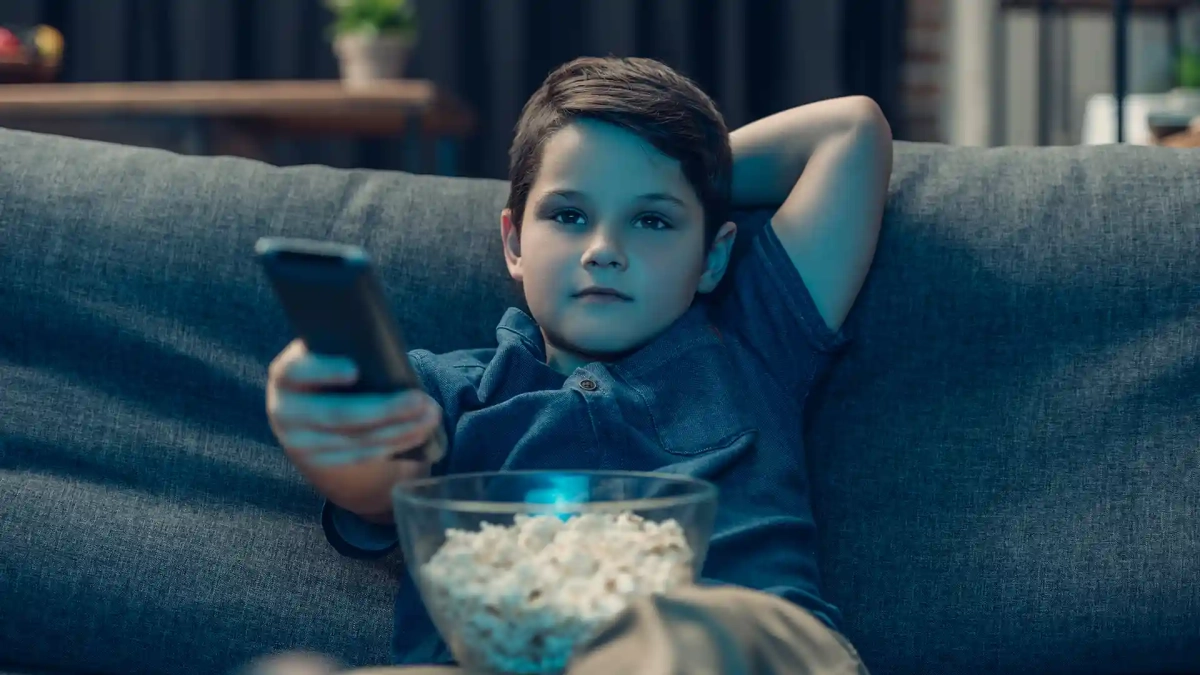Illegal Downloads by Minors in Germany: What Parents and Guardians Must Know
- Illegal Downloads by Minors in Germany: What Parents and Guardians Must Know
- Quick Facts: Parents liable for kids downloading illegally
- Why Illegal Downloads by Minors Are Taken Seriously in Germany
- How Illegal Downloads by Minors Are Tracked
- Understanding the Legal Concept of “Störerhaftung”
- Illegal Downloads by Minors in Germany: What the Law Says
- What Happens When You Receive a Legal Notice
- What Not to Do If Your Child Illegally Downloaded Content
- What to Do if You’re Accused of Illegal Downloads by Minors
- When Are Parents Liable?
- Can Minors Be Sued Directly?
- Real-World Cases of Illegal Downloads by Minors
- Is Streaming Illegal?
- Are VPNs a Legal Loophole?
- How to Prevent Illegal Downloads by Minors
- The Financial Risk of Illegal Downloads by Minors
- How to Protect Your Family
Illegal downloads by minors in Germany can lead to serious legal consequences—not just for the minor, but for their parents or guardians. While many people assume that children and teenagers are exempt from liability due to their age, the legal reality is quite different. Germany enforces one of Europe’s strictest copyright regimes, and it applies to all users of the internet, regardless of age.
In this guide, we’ll explore what happens when a minor is caught downloading copyrighted content illegally, who is held accountable, and how to protect your family from costly legal action. Whether you’re a concerned parent or an expat unfamiliar with local laws, this guide will help you navigate the legal risks of illegal downloads by minors.
Quick Facts: Parents liable for kids downloading illegally
| Topic | Summary |
|---|---|
| Illegal? | Yes, even for minors. |
| Who Pays? | Usually the parents. |
| Fines | €500–€1,500 per file. |
| Age Limit | Civil liability starts at age 7. |
| Can Sue Minor? | Yes, from age 14 in rare cases. |
| Parental Defense | Possible with proof of supervision. |
Why Illegal Downloads by Minors Are Taken Seriously in Germany
Illegal downloads by minors are not considered harmless mistakes in the eyes of German law. The country has a well-established copyright enforcement system that actively monitors digital activity on file-sharing platforms and peer-to-peer networks. When copyrighted material—like films, music, software, or e-books—is downloaded or shared without permission, legal action is almost automatic.
Minors using torrent clients or illegal streaming services may believe they’re engaging in anonymous or harmless behavior, but copyright enforcement in Germany is precise and aggressive. This creates a legal situation where both the downloader and the account holder (usually a parent) are potentially held responsible.
How Illegal Downloads by Minors Are Tracked
Germany uses a structured process to detect copyright violations. Rights holders hire specialized legal firms that use tracking software to monitor file-sharing networks. These tools identify IP addresses that have participated in the upload or download of copyrighted content.
Once an IP address is flagged, the internet service provider (ISP) is legally required to disclose the account holder’s identity. If a minor was the one who downloaded the content, it still appears as if the parent or guardian—registered as the account holder—committed the act. This is where the issue of “Störerhaftung” (interferer liability) comes into play.
Understanding the Legal Concept of “Störerhaftung”
“Störerhaftung” is a key legal doctrine relevant to illegal downloads by minors. It means that a person who did not directly commit an infringement can still be held liable if they enabled it through neglect or failure to supervise. In practice, this often implicates parents whose minor children use the home internet to download pirated content.
While the minor may have clicked “download,” it is the adult account holder who receives the legal warning letter—known as an Abmahnung. Courts will examine whether the parents fulfilled their legal duty to educate and supervise their children’s internet use.
Illegal Downloads by Minors in Germany: What the Law Says
In Germany, the legal age of full responsibility starts at 18, but children aged 7 and older can still be held liable to some extent, especially in civil cases. Courts take into account whether the minor understood their actions were illegal. Regardless, even if the minor’s liability is reduced, parents are expected to fulfill a supervisory role and can still face financial consequences.
If it is determined that the parents failed to adequately inform their children about the risks of illegal downloading—or didn’t implement reasonable controls—they may be ordered to pay fines, legal fees, or even compensation to the copyright holder.
What Happens When You Receive a Legal Notice
Illegal downloads by minors often come to light when the ISP forwards a copyright complaint to the account holder. This results in a cease-and-desist letter (Abmahnung) demanding the following:
- A signed Unterlassungserklärung (cease-and-desist declaration)
- Payment of a settlement amount (commonly €500 to €1,500 per file)
- Coverage of the rights holder’s legal fees
This letter usually arrives via registered mail and includes legal threats, deadlines, and specific details of the infringement. It’s legally binding and should never be ignored.
What Not to Do If Your Child Illegally Downloaded Content
Receiving a legal notice can be overwhelming, but responding improperly can worsen the situation. Here’s what not to do:
- Do not sign the cease-and-desist declaration immediately
The standard declaration is often heavily biased in favor of the rights holder. Signing it without legal counsel could expose you to long-term legal risks. - Do not ignore the letter
Ignoring an Abmahnung can lead to escalated legal proceedings, potentially costing thousands of euros. - Do not contact the law firm aggressively
Emotional or hostile replies will not help and may work against you in court.
What to Do if You’re Accused of Illegal Downloads by Minors
Here are the correct steps to take if your family receives a warning letter due to illegal downloads by minors:
- Seek Legal Advice Immediately
A German lawyer specializing in copyright law can often negotiate a reduced settlement, draft a modified declaration, or even challenge the claim. - Assess the Details of the Infringement
Check the time and nature of the alleged download. If your child has admitted to it, be transparent with your lawyer. - Avoid Making Written Admissions Without Counsel
Any written reply can be used in court. Have everything reviewed by a legal expert. - Pay Only After Legal Review
In some cases, the fine can be significantly lowered—or dismissed—depending on how well the parents supervised the child.
When Are Parents Liable?
Illegal downloads by minors don’t automatically lead to parental liability. Courts will review whether the parent:
- Educated the child about copyright laws
- Restricted access to file-sharing software
- Monitored usage within reason
- Took additional steps if the child had a history of misusing the internet
If the court finds that the parent took “reasonable care,” they may avoid liability. However, if the parent fails to identify who in the household committed the act, they may be held financially accountable.
Can Minors Be Sued Directly?
Yes, but it’s rare. If the minor is at least 14 years old and demonstrates understanding of the legal breach, they may be held directly responsible in civil court. However, the rights holder usually goes after the adult account holder unless there’s clear evidence that the minor acted independently and knowingly.
Real-World Cases of Illegal Downloads by Minors
Numerous real-life cases have shown how German courts treat illegal downloads by minors:
- In one case, a 13-year-old downloaded music using BitTorrent. The court ruled the parents liable because they had not discussed internet rules with their child.
- In another case, the court ruled in favor of the parents because they had educated the child and prohibited file-sharing usage—but refused to name the actual user in the household, invoking the right to protect family members.
These examples show how critical it is for parents to document the guidance they give their children and to act swiftly if something goes wrong.
Is Streaming Illegal?
Many minors use free streaming sites rather than downloading files. It’s important to note that streaming copyrighted content from unauthorized sources can also be illegal in Germany.
While historically a gray area, recent rulings have clarified that streaming copyrighted material from illegal platforms may still result in penalties, especially if done repeatedly or deliberately.
Are VPNs a Legal Loophole?
No. Using a VPN to hide your location does not protect you from liability if illegal downloads by minors occur on your home network. Tracking tools can still detect peer-to-peer file-sharing activity, and ISPs may be ordered to identify users regardless of VPN masking.
How to Prevent Illegal Downloads by Minors
Prevention is the best strategy. Here are proactive steps every parent should take:
- Discuss Copyright Laws
Talk to your children about what’s legal and what’s not online. Make sure they understand the risks and consequences. - Install Parental Control Software
Use trusted tools that restrict access to torrent sites and monitor downloads. - Use Only Legal Services
Encourage the use of Netflix, Spotify, Disney+, and other authorized services. - Password-Protect All Devices
Limit installation of unauthorized software like BitTorrent clients or download managers. - Keep Internet Access Centralized
Avoid giving unsupervised access in bedrooms or private spaces. - Create a Family Internet Usage Policy
Outline clearly what is and isn’t acceptable and have everyone agree to it.
The Financial Risk of Illegal Downloads by Minors
Illegal downloads by minors can cost families thousands of euros. Beyond the initial fine, there are lawyer fees, translation costs, and the emotional burden of legal stress. In some severe cases, families have had to deal with lawsuits and payment plans stretching over years.
A one-time mistake on the part of a teenager can have long-term financial consequences for the entire household.
How to Protect Your Family
Illegal downloads by minors can lead to serious legal consequences in Germany. While the minor might not fully understand the implications of their actions, parents are often held responsible unless they can prove they took reasonable steps to prevent the infringement.
To protect your household:
- Educate your children
- Supervise internet use
- Respond promptly to legal letters
- Seek expert legal help
- Promote legal alternatives
Germany’s copyright system is strict, and ignorance of the law is not a valid defense. Being proactive is not only legally wise but also financially necessary.
Illegal downloads by minors are more common than most parents realize—but that doesn’t mean they’re legally acceptable. In Germany, where digital rights are tightly enforced, even one download can result in a costly legal entanglement.
By staying informed, taking preventative measures, and responding correctly to legal notices, families can avoid long-term consequences and teach children to respect digital ownership in an increasingly connected world.
How informative was this article?
Click on a star to rate it!
We are sorry that this post was not useful for you!
Let us improve this post!
What is missing in the article?















